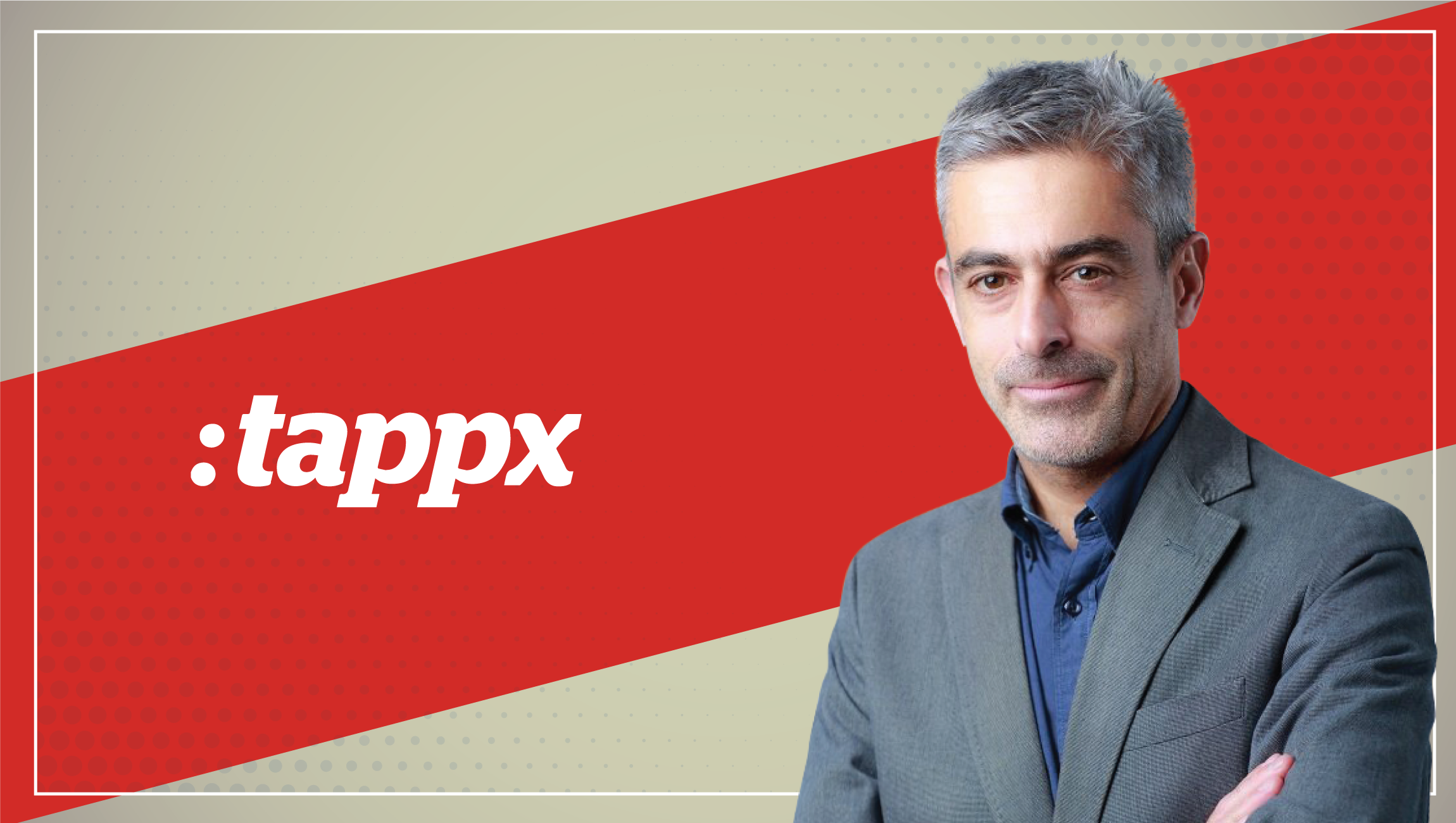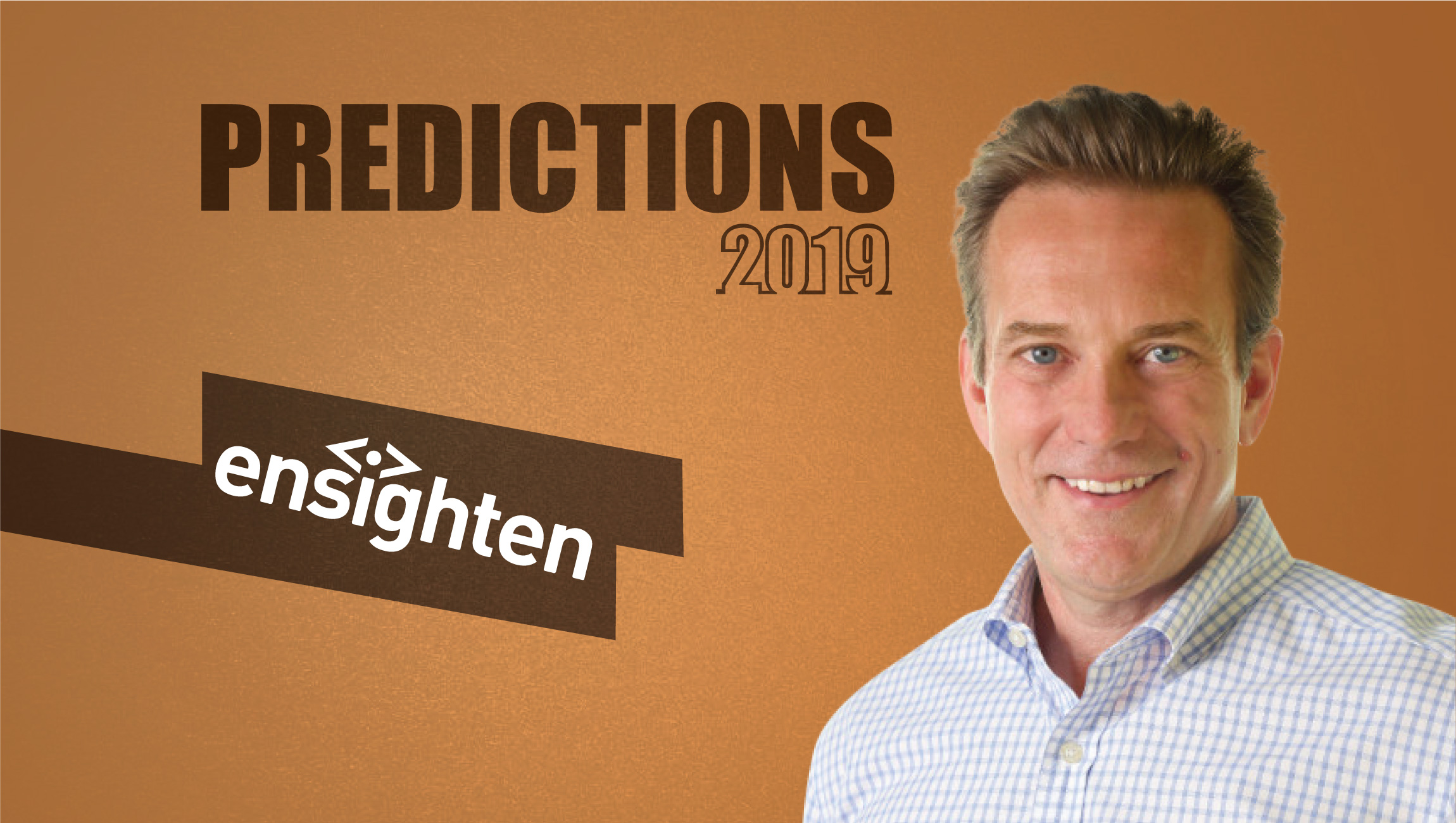Tell us about your role and journey into advertising.
Since October 2018, I’ve been leading the Advanced TV AdTech solutions team for TV and radio publishers (broadcasters, IPTV, OTT, and platforms) and market development at Tappx. Previously, I spent seven years as Chief Digital Officer at Atresmedia, the largest TV and radio broadcasting media group in Spain, where I defined and implemented its digital business model, supported by digital advertising revenues from a portfolio of more than thirty digital properties and video platforms, that reached more than fifteen million local users, and penetrated up to a half of the Spanish Internet population. In the late 90s, I worked in media and advertising consultancy, at leading global firms such as Arthur Andersen and Deloitte.
How is the advertising industry different from what it was two years ago?
I would say that now we are seeing a real shift from traditional to digital. Leading broadcasters have been defending their positions across the traditional formats, but digital (with social and programmatic as the main drivers) have won superior positions, thanks to their greater efficiency, segmentation and return. For instance, display and video programmatic now have a majority share across most digital publishers in some countries, and soon will be mainstream, and will occupy new market areas, such as traditional TV and radio.
Tell us about differences in programmatic capabilities on TV versus other media.
First, the reach: Moving programmatic to TV means translating its advantages to a place where brands can get millions of accumulated contacts in very short periods of time; second: brand safety, since most of the traditional TV publishers (any distribution they could have: terrestrial, IPTV, OTT, etc.) manage premium and reliable content where brands and agencies usually feel comfortable; third: user experience innovation, since audiences are used to long-running conventions and standards (e.g. slot times and placements, for instance) and customizations (remote control usage or second screen experience) that are very valuable to value-added advertising formats and units.
What is the current state of advanced TV programmatic services? How does Tappx deliver on its ROI promises?
Advanced TV (such as programmatic, addressable, AI software) is being quickly adopted and implemented. Of course, hard work will be needed in some areas (for instance, technological standardizations and consensus metrics), but I’m sure that TV AdTech innovations will grow successfully: cutting-edge technologies are already available, and the programmatic advantages are obvious (and tested with other publishers).
As for Tappx, we are providing AdTech solutions to help improve and optimize the advertising slots on TV everywhere, IPTV and OTT. In the first instance, we are working for a better user experience with technologies that allow us to read video and audio and extract relevant metadata, which serves to implement optimal advertising cut-moments.
Then, these solutions, join to underlying data, allowing frequency optimization, timing and, of course, addressability and interactivity for the ads and content; also, our solutions create ad inventory through automatic multiplatform replacement of slots (linear to online, for instance); and, at the end, we adapt our technology around the best business models for our clients, including strategy and business consultancy for content and distribution.
These solutions work together with Tappx’s market-leading work across pricing and transparency, with programmatic capabilities guaranteeing monetization improvements, with flexible and variable business model agreements for our partners.
How do you choose, promote and sustain your markets for business development?
This is a key issue, of course. We are constantly analyzing the publishing landscape, generating a detailed breakdown of potential partners (such as broadcasters, IPTV and OTT platforms, digital native publishers, traditional press and magazine publishers, MCVNs) since each of them needs different AdTech solutions and business model approaches (not only in monetization, but also in distribution and, even, content creation). In our agreements, we are trying to improve the business model of our clients, not only via ad-tech implementation but also with a holistic understanding of their content needs, distribution and monetization and adapting our services ad-hoc to each specific case.
What are your predictions on the most impactful disruptions in Marketing Technology for 2018-2020?
The programmatic market will keep increasing its share, and most AI solutions applied to advertising will be successfully implemented, accelerating the shift from traditional to digital monetization. I also think that we’ll see some interesting innovations regarding the distribution models (we have some ideas about it) and, of course, soon there ’ll be some interesting steps in advanced technological and UX solutions imported from other industries (such as blockchain and IoT).
What startups in the technology industry are you watching keenly right now?
There are so many examples, I can’t list them all. But I would say that our prospection has two key paths: technologies that are complementary to our solutions (for instance, multi-platform developers and data specialized companies) and other international companies which were similar to Tappx, that could be interesting for both benchmarking and territorial collaborations and business development. And let’s not forget tech startups working in the content innovation space, since ad-segmentation and automation implies, and at the end, content-segmentation and automation.
How do you prepare for an AI-centric world as a business leader?
As my role is focused on AI AdTech solutions, I think that I have some advantages in having the first-hand experience, with examples across business model implementations with their challenges, successes, and failures.
I guess that my previous expertise (which includes consultancy, content creation, distribution solutions, business model design, the traditional media landscape.), even if it doesn’t allow me to feel that I am a big expert in any area, could help to apply AI outcomes to this digital transformation of our clients,making it possible to balance old-new procedures, business models and feelings.
How do you inspire your people to work with technology?
Well, I think that technology itself really inspires people to work with it, without relevant external pushes. However, I have to give simple advice ù this is to always have in mind the business model implications (content, distribution, and monetization, in the case of media) for each tech solution, and clearly understand the rules of non-tech areas and processes (for example, in the media industry, I see as a key for people from the tech side to understand how the content is made and, the other way around, for content people to understand how the tech works for distribution and monetization).
One word that best describes how you work?
Methodology.
What apps/software/tools can’t you live without?
To be honest, my Garmin Forerunner and some excel files where I upload the data from my daily runs.
What are you currently reading?
Well, for professional purposes I usually read a lot of specialized sources, joined with the usual mainstream media. However, as a voracious reader, I usually have focus in simultaneous readings in fiction, story, and essay; now, waiting for the Spanish edition of second part of “Killing Commendatore” by Haruki Murakami and the next release of “Comedy” by Dante in the new Acantilado’s edition by José María Micó, I am ending the second part (books XIII to XXIV) of Chateaubriand’s Memoirs join to a couple of brilliant short novels by Yuri Herrera and Gonzalo Hidalgo Bayal.
What’s the best advice you’ve ever received?
“Please, don’t write long speeches!”
Tag the one person in the industry whose answers to these questions you would love to read?
Maylis Chevalier, Country Manager of Ligatus Spain.
Thank you, José Manuel Gonzalez ! That was fun and hope to see you back on MarTech Series soon.
Pacheco is Tappx’s Advanced TV & Audio Advertising Strategist & Partnerships Director. Before Tappx he spent six years as General Manager at Atresmedia Digital, which is Spain’s leading media group (TV, web, internet, radio, cinema). At Atresmedia, José Manuel managed 150 staff, and he was responsible for building over 40 digital properties.

Tappx was founded in 2014 by Daniel Reina (CEO) and Antonio Hervás (CTO). Tappx is a global AdTech company specialising in solutions for advanced digital platforms such as mobile, digital TV and audio. Tappx boasts a community with over 28,000 members that provides cost-free cross-promotion, enabling app and game developers to exchange ads in the Tappx community. Developers also can focus on boosting their revenue through the Tappx monetisation solution that connects to hundreds of demand sources and provide the best ads for your audience at the highest CPM you establish, whilst proprietary AI algorithms take care of the hard work.
Members are free to choose how they allocate their traffic towards these two functionalities, creating the performance balance they desire between acquisition and monetisation, ensuring they never miss hitting their strategic objectives.
Tappx is the 2nd fastest growing tech startup in Spain (according to TECH5 and The Next Web) and handles over 400 billion monthly ad requests. Tappx has a global presence with offices in Barcelona, China and India. Tappx has a wide range of clients , industries, from indie developers to top names such as Cheetah Mobile, Etermax and Baidu.
The MTS Martech Interview Series is a fun Q&A style chat which we really enjoy doing with martech leaders. With inspiration from Lifehacker’s How I work interviews, the MarTech Series Interviews follows a two part format On Marketing Technology, and This Is How I Work. The format was chosen because when we decided to start an interview series with the biggest and brightest minds in martech – we wanted to get insight into two areas … one – their ideas on marketing tech and two – insights into the philosophy and methods that make these leaders tick.



